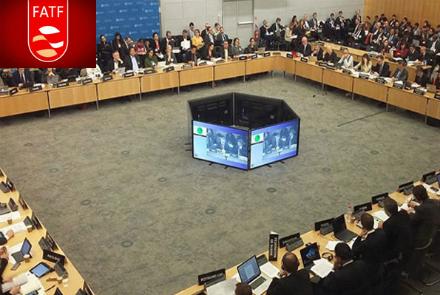A global anti-money laundering watchdog on Wednesday night took the decision to add Pakistan to the grey list of countries involved in providing monetary assistance to terrorism and related causes.
The Financial Action Task Force on Money Laundering (FATF), met in Paris on Wednesday and later confirmed the decision, Geo News reported.
FATF is an intergovernmental organization that maintains grey and black lists for identifying countries that have failed to stop money-laundering and who finance terrorism.
Presenting Pakistan's case at the FATF talks in Paris, Shamshad Akhtar, the interim minister for finance and planning, detailed steps taken by Pakistan to stem money laundering and terror financing.
However, these steps appeared not to have been enough as the 37-nation FATF plenary agreed to add Pakistan to the list.
Discussions on Washington’s proposal to incorporate Pakistan on the list of countries supporting terrorism started in February by the global anti-money laundering agency.
At the time experts said that if placed on the list Pakistan could likely face enormous difficulties in terms of global money deals and that foreign investors will face restrictions on their investments in Pakistan.
In early February, the United States proposed the inclusion of Pakistan on the list of countries sponsoring terrorists. The UK, France and Germany also came out in support of the move.
Earlier this month, officials from the Afghanistan Chamber of Commerce and Industries (ACCI) meanwhile warned Afghans who use Pakistani Rupees to refrain from doing so in the event of Pakistan being added to the grey list.
According to ACCI officials, currently around 40 percent of trade and business in bordering provinces with Pakistan, and in central parts of the country, is carried out by Afghans using Pakistani Rupees.
ACCI said these traders could suffer heavy losses if Pakistan is included on the grey list.
The Central Bank of Afghanistan also warned that based on the law they would not be able to help Afghans who suffer losses because of Pakistan’s inclusion on the grey list.
Aimal Hashoor, spokesman for the central bank, said if Afghans using Pakistani Rupees suffer financial losses, the central bank does not have any obligation to help them.
“We doubtless know that people may suffer losses, but it is their choice because they use the rupees. We want people to use Afghanis instead of Pakistani Rupees,” said Hashoor in early June.
Based in Paris, FATF, the global watchdog on money laundering and terror financing, put Pakistan on its watch list in February this year.
Pakistan was listed as grey in 2012 but was removed in 2015 after strenuous efforts to address the concerns of the group.


